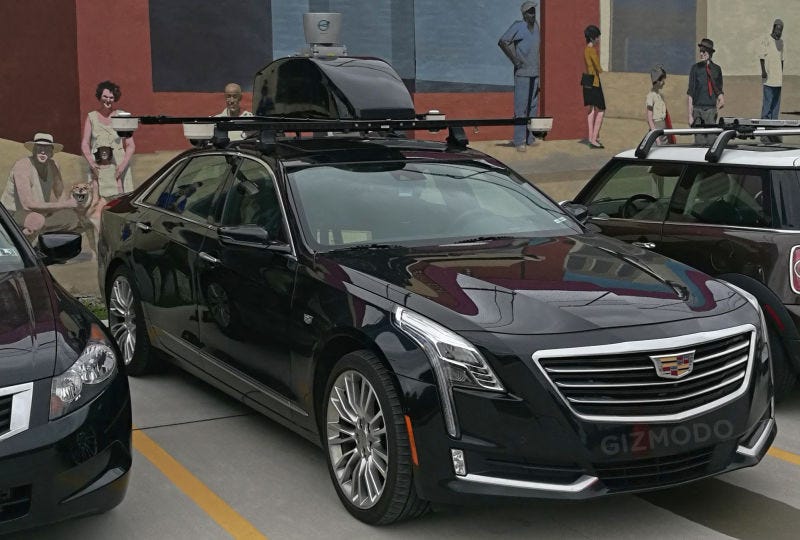Last Week in Tech Deals
A Week in New England Tech VC Activity
Welcome Back
With no global pandemic declared yet, I’ve been surfing registries for some creative coronavirus domain names. Here are a few bargains that are still up for grabs:
globalpandemic.co- $39COVID19test.org- $17pandemic.fm- $100
But in all seriousness, it’s great to see small and large companies developing solid action plans as the virus continues to impact global operations. Here’s a great piece by Elad Gil on how startups and individuals can stay prepared.
What I’m Reading:
YCombinator and Pillar both published some fantastic Series A guides
Profile on Boston-based Inrupt, founded by internet-pioneer Tim Berners-Lee
If you’re new to my emails and posts, welcome! My name is Nick Stuart and I write a weekly newsletter on tech VC financing trends in the Boston area. You can learn more about me on my website here and about the micro-VC I help run here. Onto weekly financing deals:
VC Financing Deals:
Marketplace Spotlight: Host 🍸
Last time I wrote about Host, they had partially filled a round of funding according to an SEC filing. In December, they formally closed a $450K investment led by Launchpad Venture Group’s Ian Levine, with participation from a collection of Boston, New York, and Washington-based angels.
Host is a tech-enabled service focused on helping corporate event planners get connected with high-quality bartenders for events.
Over the last week, I got a chance to speak over the phone with Host’s co-founder and CEO, Michelle Carazas, to learn more about why she’s excited to bring on-demand bartenders to companies in cities across the US. Michelle started Host after graduating from Syracuse and working as a bartender gig on top of her full-time job to pay off student loans. A corporate client approached her with an opportunity to serve drinks at a corporate event and she wondered what the demand for working these types of events might be. She worked with her co-founder, Brian Megill, to validate the idea through market research and customer interviews, determining that there was a sweet spot between “a bucket of beers” and a full-blown catered event. Similar to Uber’s early days, Host is focusing on a small portion of a large overall market.
Like many marketplace companies growing in the US had to do in the early days, I wondered how Michelle’s team is tackling the “chicken and egg” problem of supply and demand on the Host platform. According to Michelle, they’re focusing on building strong communities for both their bartenders and corporate customers. Both groups have their own needs and are attracted to the platform because of different value propositions.
Bartenders want flexible work hours and supplemental income, especially hours that pay well during the “down” time at normal bars. These downtimes are typically when corporate events are held anyways. Host guarantees an income of over $36 an hour to the laborers on their platform, and there’s no minimum or maximum amount of work required to remain on the platform.
On the corporate customer side, event coordinators want simplicity and quality. Host is very particular about which bartenders they allow on the platform; requiring bartenders to have background checks, 3+ years of experience, and state certifications. Bartenders on the Host platform are also fully insured, backed by $1M in general liability and $2M in liquor liability insurance. They don’t just want bartenders that can pour a vodka soda, they want people who can run a room and deliver their own unique experience to patrons. Similar to how Uber requires drivers to bring the car, Host requires bartenders on the platform to bring their own equipment (pourers, shakers, etc.) to events and to wear professional attire. This helps high-quality mixologists get more business through high customer ratings, while keeping business less capital-intensive for Host.
Event coordinators are responsible for obtaining alcohol for events, although Host does provide a calculator tool to help determine appropriate order sizes. This opens the door for potential distribution partnerships between Host and grocery stores, liquor stores, or delivery apps. The strength of these distribution partnerships could serve as a strong moat against competitors. Similar companies have started in the opposite direction. Saucey, for example, is an LA-based liquor delivery app (similar to Drizly) that launched a bartender service in 2017. However, the bartender offering has since been removed from their website.
According to the Bureau of Labor Statistics, there are over 644K bartenders in the US workforce, a figure growing at an annual rate of 8%, with a median pay of around $11 per hour. Statista data shows that the US demand for bartenders in the restaurant industry alone is expected to exceed 696K by 2026.
Overall, alcohol consumption in the US is expected to increase, with spirits and wines seeing the biggest boost. What intrigues me more is the recent rise in non-alcoholic beverages being served in bars and corporate settings and the business opportunities it has created. Just last week, Liquid Death raised a $9M Series A for their canned water that proponents say is more about making sober people comfortable in drinking settings than it is about the water (I’ll be writing more about them next week). Similarly, a growing base of consumers prefer low to no ABV products, bringing rise to low ABV products like Haus and even Kin, the non-alcoholic DTC “europhic.” By serving alcoholic and non-alcoholic cocktails, businesses can increase their customer base for a small marginal cost. In the case of corporate events, this could mean making sober employees feel more included. If these beverages can find a way to get into the distribution channel of companies like Host, they may find an interesting niche of customers.

So what’s next for Host? According to Michelle, the past year was all about customer discovery and product-market fit. This year will be about growing overall volume on the platform, fine-tuning their marketing, seeking attractive partnership opportunities, and rolling out to other major cities.
If you’d like to learn more about Host, you can visit www.hostdrinks.com or email Michelle at michelle@hostdrinks.com.
VODA.ai 🚰
Back in November, I wrote about VODA’s $3M fundraise, of which it appears that $1.5M ended up getting filled. Last week, VODA announced its second round of funding for an undisclosed amount, led by Innospark Ventures with participation from Massachusetts Clean Energy Center. The company uses AI to monitor the health of utility piping and streamline replacement and maintenance processes. Voda’s “daVinci ML engine” analyzes pipe breakage history, pipe age, and a handful of other data-sets to predict the likelihood of a utility pipe breaking.
LinkSquares 📝
LinkSquares, the five-year-old AI-powered contract analytics platform, just raised $14.5M in Series A funding led by Jump Capital, with participation from MassMutual Ventures, Hyperplane VC, and First Ascent Ventures. With total capital raised now approaching $27M, LinkSquares plans to use the funds to expand its engineering, sales, and product teams. The company helps businesses know the key liabilities within a contract before reading them. The software is used for crisis management, quarterly reporting, fundraising/M&A, and internal legal processes.
Starface 🌟
Branching out of Boston and into New England deals; A Connecticut-based beauty products company called Starface just raised a $2M Seed Round led by BBG “Built by Girls” Ventures. They’re the creator of Hydro-Stars: Star-shaped stickers that you stick on pimples to accelerate their treatment. Instead of trying to hide a breakout, the company encourages people to decorate their faces in these stickers like a “badge of honor.” According to Vogue Business, their sales have grown 50% MoM since launching in September 2019. Statista reports that 35% of women in the US use foundation/concealer makeup, a market that is expected to reach $13.5B in size by 2025.

Image: The Starface stickers and accompanying sticker case
NextDroid 🤖
According to a new Form D filing, NextDroid has raised over $2.9M in a $4.9M round of financing. The stealthy robotics startup is run by Carnegie Mellon and MIT graduates and is focused on developing autonomous land and maritime vehicles. They’ve been making progress on the road since at least 2017. They operate out of both Boston and Pittsburgh, and now have nine employees according to LinkedIn. Their first product is the NxD-Sled — a “bolt-on” piece of hardware that “autonomously assesses faults of autonomous driving features.”

Image: An image taken in 2017 of NextDroid’s bolt-on AV hardware. (Gizmodo)
Acoustic Wells 🛢️
Acoustic Wells, the developer of a “stethoscope for oil wells” has raised $2.29M from undisclosed investors. The company has developed a turn-key IoT solution for assessing the conditions of oil wells to help improve efficiency and increase production. According to their website, they have received funding from the MIT Sandbox, MIT $100K, MIT Delta v, MassChallenge, and CleanTech Open. They also recently graduated from the SF-based Alchemist Accelerator, which typically gives $36K in funding to participants for the 6-month program.
Applied BioMath 🧬
According to an SEC filing, Concord, MA-based Applied BioMath is raising $4.1M in funding, of which $25K has closed last week. The company specializes in creating mathematical models and simulations for drug development in biotech and pharmaceutical companies. They’ve raised $2.38M to date, backed by grants and equity funding from the National Institute On Aging, the National Institutes of Health, and 10x Venture Partners.
Figur8 📡
Boston-based wearable sensor company Figur8 has raised $1.5M from so far undisclosed investors, bringing their total raised to $13.4M. The company has developed a suite of sensors and accompanying software to help capture 3-D skeletal movement data for a variety of uses like training, recovery, and performance optimization. Previous investors include the Boston Angel Club, E14 Fund Management, P5 Health Ventures, and Social Starts.

Image: The suite of Figur8 sensor and software products.
Eleanor Health 🏥
Waltham-based Eleanor Health just raised $3.13M from undisclosed investors, bringing their total raised to $12M. Founded in May of 2019, the company offers personalized, evidence-based outpatient care and addiction recovery services. Their services connect patients with medication, therapy, and external resources. Previous investors include Echo Health Ventures, Mosaic Health Solutions, and Town Hall Ventures.
Thanks for reading!
That’s all from me until next week — If you’d like to connect with me, you can find me on Linkedin and Twitter or check out my website at nickstu.art.
Missing something? Spot an inaccuracy?
Email me and tell me about it! I’ll be sure to share it in my next update.

